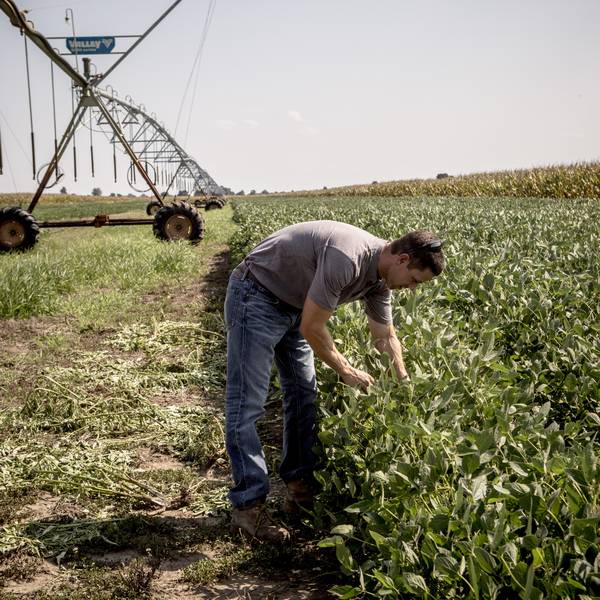Just a month after the Trump administration doubled down on the alleged safety of atrazine, a United Nations agency said on Friday that the pesticide—which is banned by dozens of countries but commonly used on corn, sugarcane, and sorghum in the United States—probably causes cancer.
"It is outrageously irresponsible that we still allow use of this dangerous poison in the United States," said Nathan Donley, the Center for Biological Diversity's environmental health science director, in a Friday statement. "This finding is just the latest indictment of the industry-controlled US pesticide oversight process that is failing to protect people and wildlife from chemicals linked to numerous health harms."
Research into and alarm over atrazine have mounted since the World Health Organization's International Agency for Research on Cancer initially concluded in 1999 that it was not classifiable as carcinogenic to humans. IACR has now announced new findings for atrazine and alachlor, another herbicide widely used on crops, as well as the agricultural fungicide vinclozolin.
Of the three, only atrazine was previously examined by IARC. From October 28 to November 4, a working group of 22 international experts from a dozen countries met in France to evaluate the carcinogenicity of pesticides. They classified vinclozolin as "possibly carcinogenic to humans, and both alachlor and atrazine as "probably carcinogenic to humans."
The latter two decisions were based on a combination of limited evidence for cancer in humans, sufficient evidence for cancer in animals, and strong mechanistic evidence in experimental systems. IARC said that "for atrazine, positive associations have been observed for non-Hodgkin lymphoma that is positive for the chromosomal translocation t(14;18)."
A couple of weeks before that IARC meeting, the Trump administration sparked outrage with a US Fish and Wildlife Service (USFWS) draft opinion claiming that atrazine does not pose an extinction risk to a single protected animal or plant.
That draft opinion came as President Donald Trump and Health and Human Services Secretary Robert F. Kennedy Jr. were already under fire for the second Make America Healthy Again report. After the first MAHA publication noted concerns regarding pesticides, even naming atrazine, agribusiness lobbyists confronted the administration, and the following document ultimately featured pesticide industry talking points.
The second report's "only mention of pesticides is an Orwellian promise to ensure 'confidence in EPA's robust pesticide review procedures'—procedures courts have repeatedly found unlawful and that frontline communities know cannot be trusted," the Center for Food Safety said after its September release. "Instead, it says that it will speed up pesticide approval and it will 'partner' with the pesticide industry to 'educate' the public about the 'robust review' of EPA's regulation of pesticides to provide the public with 'confidence.'"
Then came the USFWS draft, which Center for Food Safety senior attorney Sylvia Wu said "makes clear that despite the rhetoric of MAHA, there will be no robust review of the dangers of pesticides by the Trump administration... Instead, a toxic poison like atrazine will continue to contaminate our lands and waters, making our children sick for decades to come."
Wu's group has long been critical of atrazine. During the first Trump administration, it was part of a coalition that sued over the Environmental Protection Agency's (EPA) 2020 reapproval of the herbicide. So was the Center for Biological Diversity—which was also angered by the USFWS document, with Donley calling it "an absolute joke."
Donley took aim at the Trump administration again on Friday, after IACR announced its new classification for atrazine.
"Despite its rhetoric to the contrary, there is no better friend of atrazine than the Trump administration," he said. "Hiding behind the rhetoric of MAHA, EPA reapproval of a poison that's likely to keep Americans sick for generations is moving ahead full steam."




